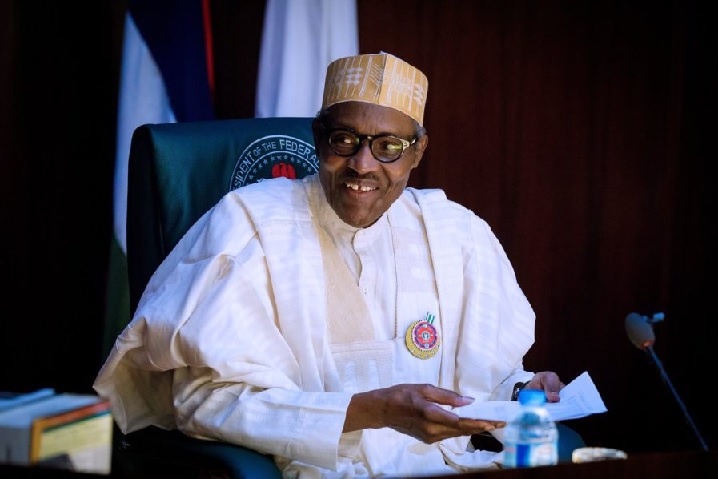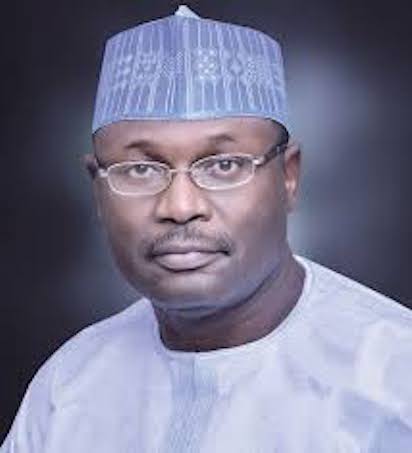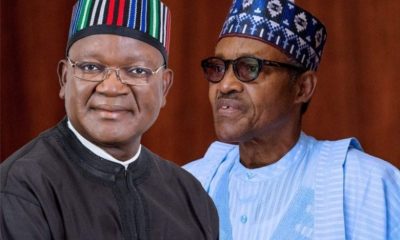POLITICS
Loopholes in the proposed Electoral Act
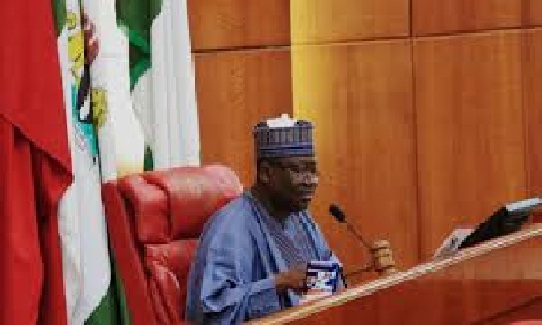
By Dakuku Petedrside
Traditional wrestling in the southern part of Nigeria is intriguing and exciting. To the uninitiated, it would appear there are no rules, but to those who understand it, there are standard rules that govern it.
The electoral system in Nigeria is like the traditional wrestling common to most parts of Nigeria. To non-Nigerian observers, they can place a bet that rules do not govern elections, but to the politically discerning persons, they see rules governed by regulations observed in the breach. Everything Nigerian is unique, though often not properly documented as a model – Nigerian English, Nigerian Jollof rice, Nigerian movies, Nigerian democracy and maybe now Nigerian Electoral Act.Free and fair elections are the bedrock of every functional democracy, ensuring that government authority derives from the will of the people. It is crucial to place rules and regulations that would guide the elections to ensure that elections are free and fair. These laws usually take into consideration, the socio-economic and political context of a particular environment. What would work in ‘Sokoto’ may not work in ‘Shokoto’. Agreed no laws are perfect, and none would completely curb electoral malpractices. Human beings, especially political actors, always have the ability and ingenuity to develop strategies to undermine a rule, however iron cast it looks. Subverting an election is not entirely an African or Third World thing.
Since the return to democratic rule in 1999, Nigeria has been experimenting with different sets of laws meant to enhance the process and credibility of our elections. The latest chapter of this tinkering is the proposed Electoral Act (Repeal and Re-Enactment) Bill 2020, currently in consideration at the National Assembly. There are speculations that the original recommendations of the Joint Technical Committee co-Chaired by Senator Kabiru Gaya of the INEC committee in Senate and Hon Aisha Dukku of Electoral Matters Committee in the House of Representatives, may have been tampered with, especially the provisions on electronic transmission of results and limits on political campaign finance.
According to some of the members of the Joint Technical Committee, the Committee , Clause 50(2) gave INEC the powers to determine the procedure for conducting election, including if chooses, electronic transmission of results. The members expressed shock, like the rest of the country, that its report was apparently tampered with, and words inserted in the said Clause 50(2), that outrightly outlaws the transmission of election results by electronic means. The disputed Clause 50(2) was now made to read as follows: “Voting at an election under this Bill shall be in accordance with the procedures determined by the commission, which may include electronic voting provided that the Commission shall not transmit results of the election by electronic means.”
The Southern Governors’ Forum, in its meeting held last week in Lagos, rejected the removal of electronic transmission of results clause from the Electoral Bill as well as the confirmation of exclusive jurisdiction in pre-election matters on the Federal High Court.
The electronic transmission of election results has been an issue in Nigeria’s elections for some time now. The opponents of this measure have cited, amongst other issues, the poor state of our infrastructure and the ability of hackers and fraudsters to manipulate results when they are transmitted electronically. They point out that the electronic voting process was never part of the Electoral Act of 2010 as amended and that even the card reader has never been part of the Act.
If the above insertion of the “strange” clause 50(2),outlawing electronic transmission of results, passes, the implication is that we are on a backward movement. The original idea behind INEC adopting electronic transmission of results, as seen in Edo elections, is to progress our electoral process to electronic voting. E-voting is no rocket science, and in this age of invention, we do not need to re- invent the wheel. Developed countries such as United Kingdom, France, Germany, Switzerland, and developing countries like India, Venezuela, and the Philippines have all adopted and are using the full compliments of e-voting. On the other hand, paper ballots, manual counting, manual collation, and hand carrying of results represent some of the most significant challenges that have affected the sanctity of elections in our part of the world and made a mockery of democracy. It leads to a lot of contestations and creates a dilemma as to whose result is original. e-compilation and e-transmission of results will strengthen our faith in the electoral system and, by extension, democracy. After all, the essence of democracy is the sanctity of votes. If the ballot is open to contestation, then it does not breed trust.
The contentious nature of our elections has made Nigerians question if it represents the wishes and aspirations of our people. Any act that further depletes trust in the electoral system is an invitation to anarchy and may lead to the death of democracy as we know it today. Due to contentions about the nature and authenticity of election results, the courts now play a more significant role in deciding who is the winner of an election, denying the people the right to free choice. A rejection of electronic transmission of results and a return to the manual transmission of results is a return to everything wrong with elections in Nigeria. For all we care, we might, as well, legalise electoral violence, ballot paper snatching, stuffing of ballot boxes, writing of results in individual homes and multiple results if we are to go back to manual and analogue electoral practices and processes.
The hue and cry of Nigerians over the purported attempt to exclude electronic voting and transmission of results from our electoral law have been deafening. And there is palpable fear amongst Nigerians that were this to succeed, it may mean that the 2023 general elections will be characterised by the flaws that have become the recurring decimal in Nigeria’s polls since 1999. Some Nigerians perceive it as an elite conspiracy to ensure Nigeria fails as a country.
I interpret the clause seeking to exclude electronic transmission of election results from the Electoral Bill 2020 as setting the grounds for cheating in future elections, as we saw in some states in 2015 and 2019. If there is anything we owe the future generation of Nigerians, it is an electoral system representing their aspirations and allowing them to elect the kind of leaders they want.
The second issue is the excessive monetization of the electoral process. The proposal before National Assembly is to move the limit of campaign expenditure for presidency from N5bn to N15bn, governorship from N1bn to N5bn, Senate to N1.5b, House of Reps to N500m, State House of Assembly and Area Council Chairmanship to N50m. The real challenge is in monitoring of this expenditure cap and enforcement of the provisions of the law. A clear case of negative impact of monetization in our politics can be seen in the alleged bribery of INEC officials to the tune of N360m in the 2015 elections by a south – south governor. He did this knowing fully well that these corrupt officials can easily manipulate the system to his advantage. If electronic electoral processes are adopted, these types of assault on our electoral system will be minimized, if not completely eliminated. For many Nigerians, some of the manual processes in our elections are susceptible to manipulation, so there should be electronic accreditation using the card reader backed by law , electronic counting of votes, electronic transmission, and electronic collation of results.
Another area of concern is the confirmation of exclusive jurisdiction in pre-election matters on the Federal High Court. Understandably, the proponents of this rule want to reduce election-related litigation for the interest of our political class and our courts, which are currently overstretched. Many politicians in Nigeria suffer from the double jeopardy of losing elections after spending so much but equally of bleeding cash through endless litigation. A critical look at this provision of the proposed amendment of the Electoral Act will conclusively show that leaving jurisdiction on electoral matters, solely with the Federal High Court would not be the best for the country. It is a fact that most of the election cases in the country are time-bound and must be concluded within a brief time. So, when only the Federal High Courts are allowed to adjudicate on pre-election matters, we are likely to have an ugly situation where many cases would linger for a while whilst waiting to be taken care of within the short period. And if we put judges under undue pressure to give judgments to meet up with time, it leads to half-baked litigations and unsound pronouncements by the judges.
Also causing some rumpus in the proposed bill is the removal of INEC’s power to review results declared under duress or in contravention of electoral laws and guidelines as contained in section 65 of the proposed legislation. For many political analysts, INEC is to review results declared under duress to reduce the level of electoral malpractices that have become so common in our country, which demeans our electoral process and discredits our fledgling democracy.
This proposed clause in the legislation would require serious scrutiny as it has its pros and cons .Forcing an electoral official to declare result under duress is a criminal offense . The real challenge is in enforcement of laws against criminality . We had a case in the last election in Imo State where an INEC Returning Officer lamented before the press that a Senatorial candidate had allegedly kidnapped him and forced him to announce his ‘acceptable’ result. This example is deplorable and abhorrent.
To get it right and for our democracy to flourish, our laws should reflect the will of the people and strengthen our democratic process. Our leaders, especially our lawmakers, should realise that many laws they make today would go beyond their tenures, even their lifetimes. So, it becomes imperative that the process of law-making should be covertly and overtly patriotic and devoid of partisan, tribal or primordial sentiments. Like the wrestling in the southern part of Nigeria mentioned earlier, electoral engagement rules must be clear to all, both the initiated and uninitiated. Electronic voting and transmission of the results are necessary and should be added to the Electoral Act.
POLITICS
Zamfara North Communities Condemn Gov. Lawal’s Leadership as Total Failure
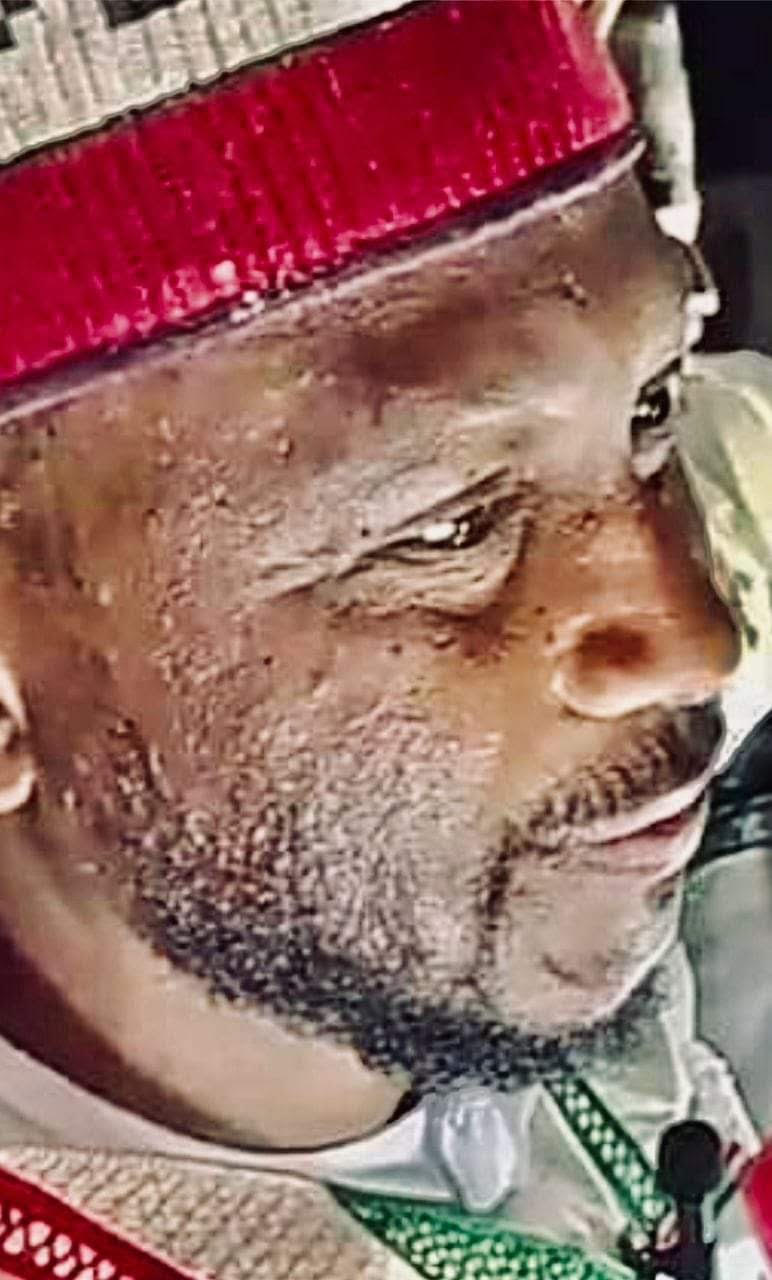
By David Torough, Abuja
A coalition representing four local government areas in Zamfara North Senatorial District has launched a scathing attack on Governor Dauda Lawal, branding his administration a “monumental failure” after two years in office.
In a statement on Wednesday, the coalition—made up of Kauran Namoda, Birnin Magaji, Shinkafi, and Zurmi communities—accused Governor Lawal of abandoning his campaign promises and worsening the region’s insecurity, poverty, and infrastructure decay.
Speaking on behalf of the coalition, Chairman Yakubu Ibrahim Shinkafi lamented the dire conditions residents now face.
“People can no longer sleep with both eyes closed.
They cannot go to their farms. They wake up and sleep in hunger,” Shinkafi said.“Yet, during the 2023 campaign, he promised to end insecurity and hunger within two weeks.”
The coalition highlighted the unrelenting wave of banditry, kidnappings, and extortion plaguing their communities.
Shinkafi claimed thousands have lost their lives, while others have been forced to pay millions in ransoms, even as the state government celebrates its second year in office.
“What is he celebrating? He is celebrating failure,” Shinkafi remarked bitterly.
“The situation has deteriorated. Bandits now operate with confidence while the government remains silent.”
Governor Lawal, who came into office in 2023 on promises of swift action to tackle insecurity, had assured voters that peace would return within two weeks of his inauguration. But two years on, residents say the crisis has only deepened.
“Not only has peace remained elusive, but insecurity has now become a permanent nightmare,” the coalition’s statement read.
The group commended the Nigerian Army and other security forces for their sacrifices but argued that the state government has failed to provide necessary support and leadership.
“There is no adequate intelligence cooperation, no visible engagement with communities, and no strategic direction from the governor,” the statement added.
“He has abandoned his duties and disconnected from the people’s plight.”
Beyond security concerns, the coalition criticised the collapse of essential services, pointing to deteriorating healthcare, education, and infrastructure.
“The hopes people had when Governor Lawal took office have turned into despair,” Shinkafi said.
“Our communities are calling for a serious reassessment of priorities. We demand leadership and an end to the deception.”
“Zamfara State deserves better,” the statement said .
“We will not allow our lives to be destroyed under the weight of a failed administration.”
POLITICS
Tinubu’s 2 year: APC Lauds Nigerians for Understanding

The All Progressives Congress (APC), has commended Nigerians for their understanding and support to President Bola Tinubu-led administration in the last two years.
Mr Felix Morka, the party’s National Publicity Secretary made the commendation on behalf of the party, while speaking with newsmen in Abuja on the midterm anniversary of the Tinubu-led administration.
He said that the country was on a progressive path under Tinubu, adding that more support and understanding were needed from the citizens.
“We applaud Nigerians for their invaluable understanding and support so far and we crave their continued support to Mr President for the second half of the tenure and beyond.
“The support will enable the administration unpack the fullness of the Renewed Hope Agenda for the overall good of Nigerians,”Morka said.
He noted that in the face of daunting generational challenges, Tinubu’s administration had demonstrated political will never before recorded in our contemporary political history.
Morka said that like a confident surgeon, Tinubu had enacted and continued to enact policy reforms skillfully designed to give the country, not just a chance for urgent resuscitation, but a real shot at rejuvenating its wellness.
He said that the APC leadership remained conscious of the challenges Nigerians were going through because of the inevitable policy reforms the Tinubu-led administration had to take in the interest of all.
He added that in all, the best interest and well-being of the current and future generations remained at the core of Tinubu’s thinking and actions.
Morka noted that some of the reforms of the administration include; the removal of fuel subsidy and harmonising multiple exchange rates among others.
These he said were inevitable and crucial steps to stabilising and positioning the economy for steady and sustainable growth.
“At midterm, the pall of gloom over our nation has been lifted and replaced by a dawn of rebounding optimism and progress.
“Signs and indications have never been clearer in our recent history, of a resurgent economy heralding strong prospects of a vibrant and prosperous future for our country, “Morka said.
He said that the Tinubu-led administration’s relentless war against oil theft had helped boost oil production, adding that our production now standing upwards of 1.8mbpd.
The APC spokesman said this surpassed the Organisation of Petroluem Exporting Countries (OPEC’s) quota, for the first time in recent history.
According to him, the massive reforms and investments in oil and gas sectors totaling over 8 billion dollars, had improved the ease-of-doing-business in the country.
He said that the development had revitalised stock market for enhanced profitability and attracted Foreign Direct investments (FDIs) in excess of 50 billion dollars.
Morka added that under the administration, the country had posted trade surpluses all for consecutive quarters since 2023.
“The historic Gross Domestic Product (GDP), growth of 3.38 per cent in Q4 of 2024 has been lauded by both the International Monetary Fund (IMF) and the African Development Bank (AfDB) as incontrovertible index of a rebounding economy.
“In its determination to enhance peace and security, the administration has left no stone unturned in its renewed fight against terrorism and banditry.
“Thankfully, the massive supports for military welfare and funding of the Armed Forces have resulted in the neutralising of more than 13,500 terrorists and arrests of nearly 18,000.
“With many internally-displaced persons (IDP’s) camps being shut down and displaced persons returning to their homelands, farmers are now accessing their farms with attendant crash in food prices,” Morka stated.
He said the administration had done remarkably well in the education and health sectors as well as improving basic infrastructure across the country.
“In the critical health sector, the administration has equally left indelible footprints by approving 21 strategic policies with direct bearing on the health of Nigerians.
“It has disbursed more than N80 billion to revatilise more than 8,000 primary healthcare centres (PHCs) across the 36 states and the Federal Capital Territory (FCT).
“Empirically, a lot more have been accomplished in the creative industry, solid minerals, power, energy, oil and gas sectors among others,’’ he said.
Morka advised Nigerians to continue to support the administration, saying that Tinubu is determined to serve Nigerians better in the concluding half of his four-year tenure,” he said.(NAN)
POLITICS
Edo poll: We Won’t Allow Injustice to go Unchallenged, Ighodalo Says
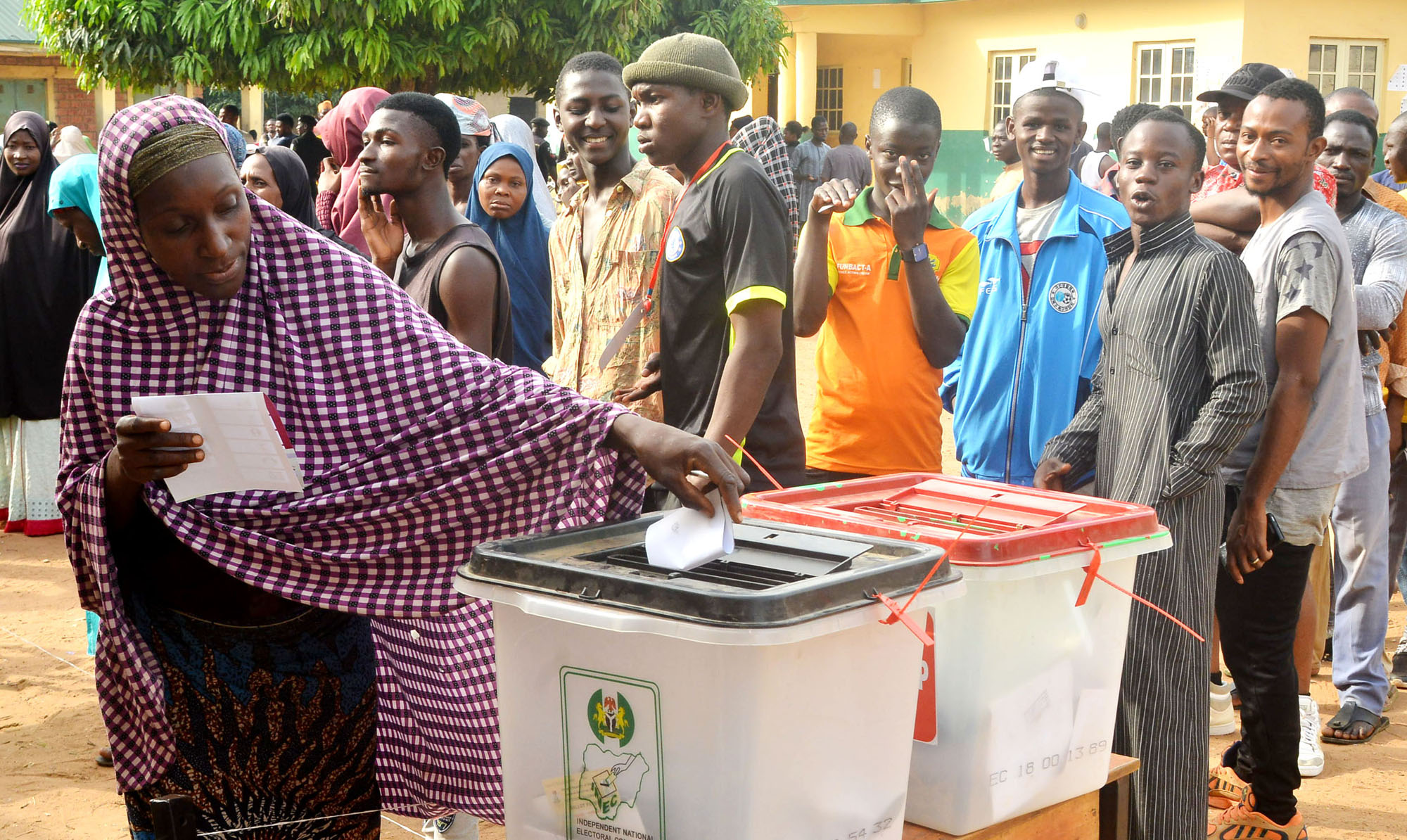
Mr Asue Ighodalo, the Peoples Democratic Party (PDP)’s candidate in the Sept. 21, 2024 governorship election in Edo, has said that he would not allow injustice to go unchallenged.Ighodalo stated this in a statement on Thursday in reaction to the Court of Appeal’s judgment which affirmed the electoral victory of Gov.
Monday Okpebholo of the All Progressives Congress (APC). “My good people of Edo State, today, the Court of Appeal delivered its judgment on our petition challenging the declared outcome of the September 21st, 2024 governorship election in Edo State. “As with the judgment of the tribunal, we have received this decision with deep disappointment, but also with unwavering resolve to continue our pursuit of justice.“As democrats and patriots, we remain anchored in our belief in the rule of law.“But we cannot, and will not, allow injustice to go unchallenged,” he said.According to him, I have therefore instructed my legal team to approach the Supreme Court of Nigeria to seek redress.“We do so for every voter who queued patiently with hope in their hearts, for every young person who dreams of a better Edo State, and for every Nigerian who still believes that democracy must be well practised to yield a great country.“The Supreme Court now bears a profound responsibility, not only to interpret the law and apply same to available facts, but to defend the democratic principles that give the law its meaning.“We approach the apex court with full confidence in its integrity, its independence, and its role as the final guardian of justice in our republic.“We believe their Lordships will consider not just the letter of the law, but the greater implications for democracy, justice, and public trust.“The eyes of Edo people, and indeed all Nigerians, now look up to the Supreme Court with hope,” he said.He said though he acknowledged the court’s pronouncement, he believed that the judgment, like that of the tribunal before it, “failed to address the grave concerns we raised regarding widespread acts of non-compliance with, and clear violations of the Electoral Act.”According to him, our struggle has never been about personal ambition.“It has always been about standing with the people of Edo State and defending their sacred right to freely choose their leaders through a credible, transparent and fair election.“That right was brazenly subverted on September 21st, 2024.“The decisions of both the Tribunal and the Court of Appeal, though rendered in the name of the law, in effect ignore the will of the people and reward blatant electoral irregularities,” he added.Ighodalo, however, urged all his supporters to remain peaceful, vigilant and steadfast.“This is not the end. It is simply the next chapter in our collective struggle for truth, justice, and a bright future for our dear Edo State.“We remain resolute. We remain committed. We remain undaunted.“And we shall not rest until the voices of our people are heard and their stolen mandate restored,” he concluded.(NAN



